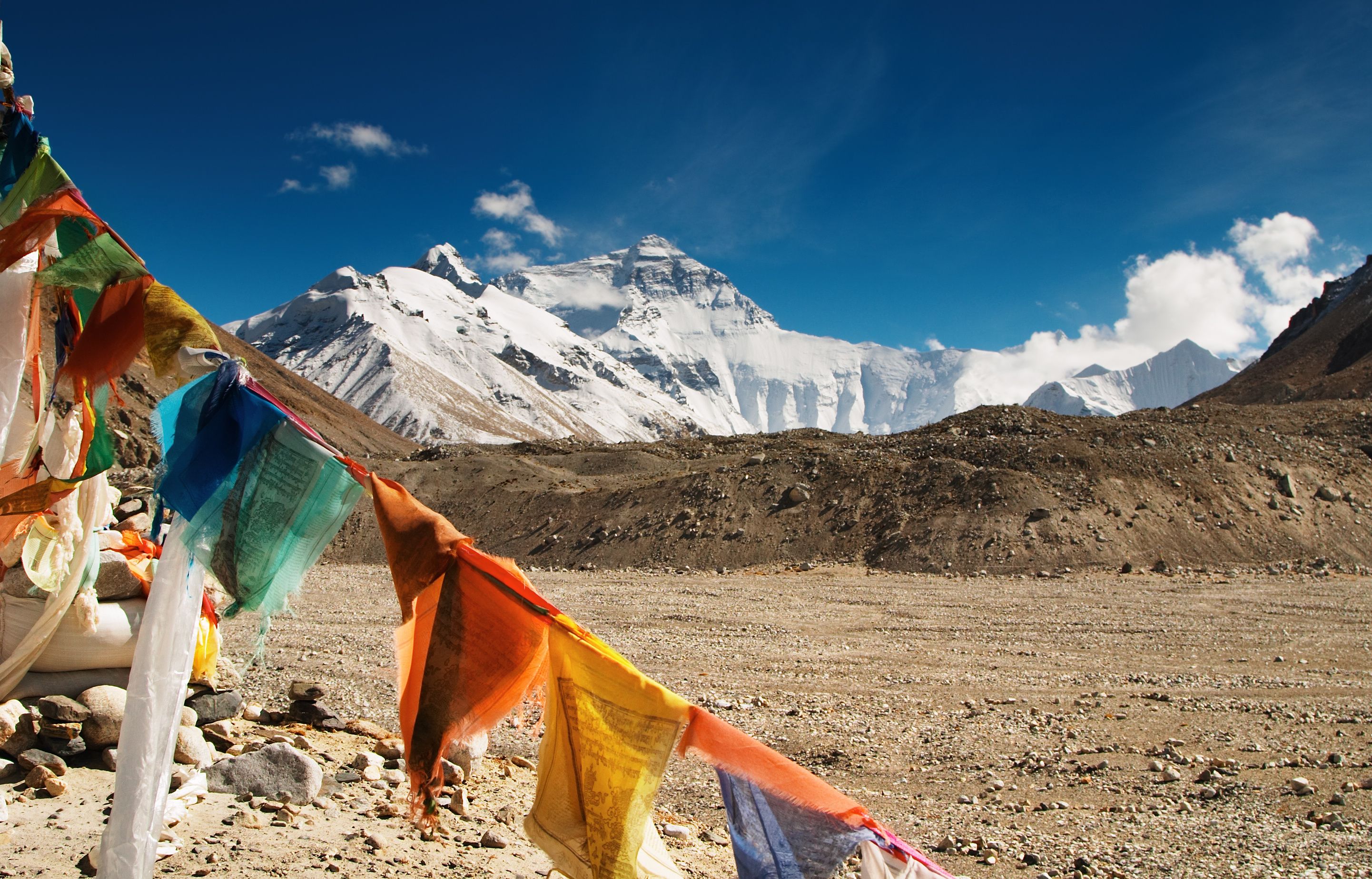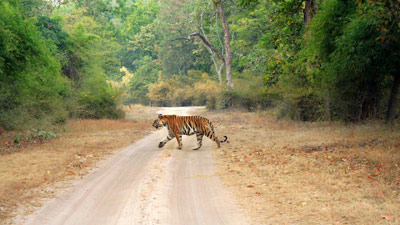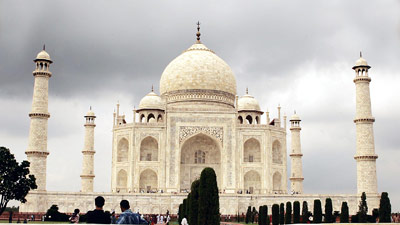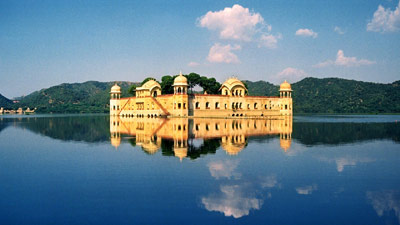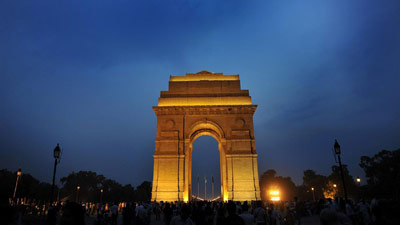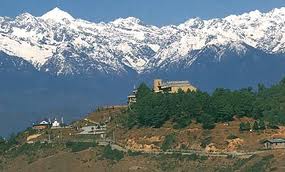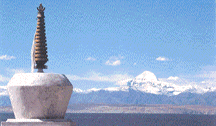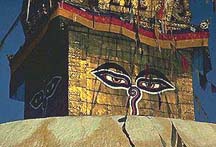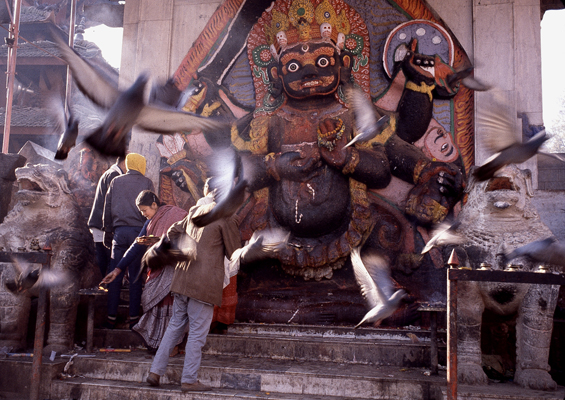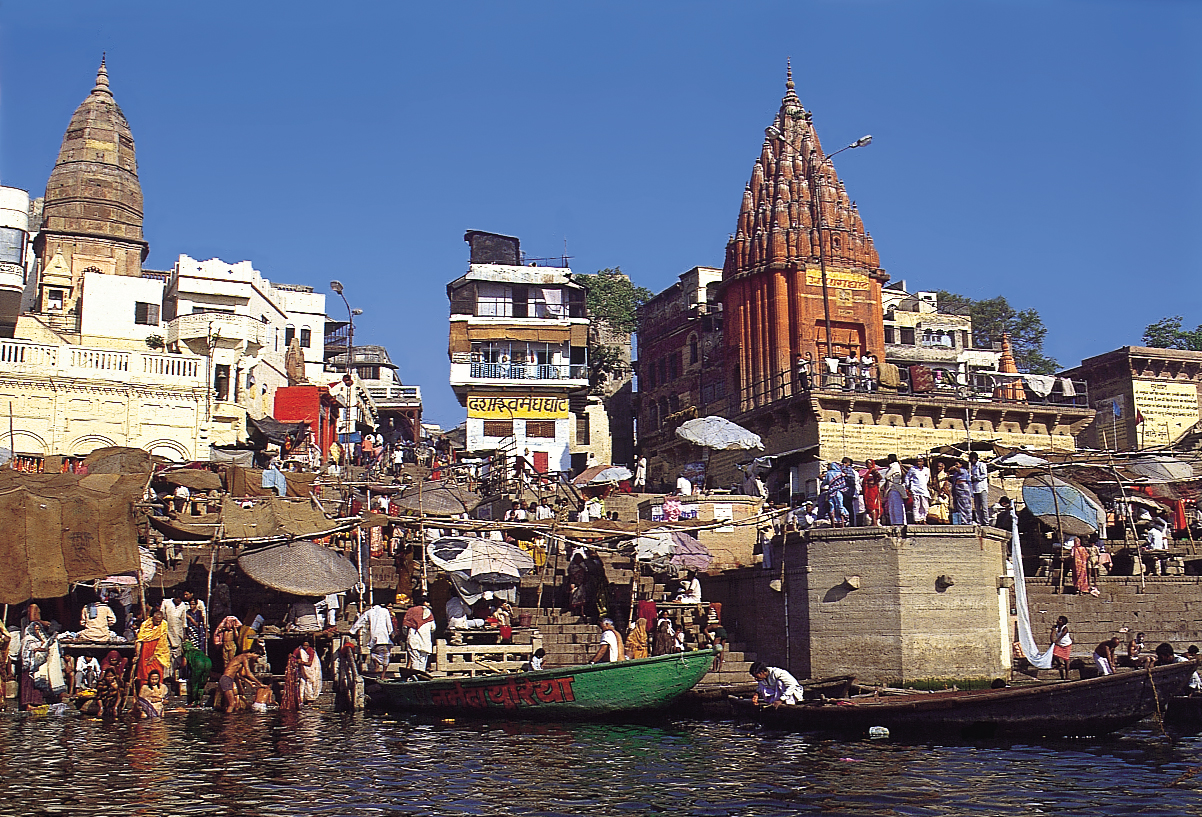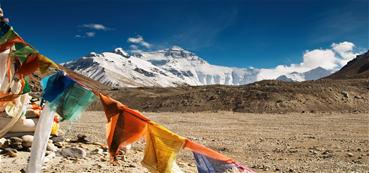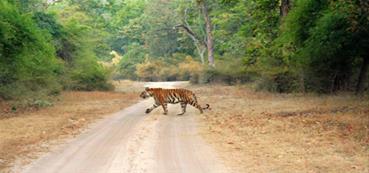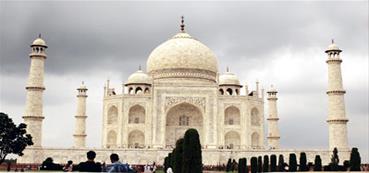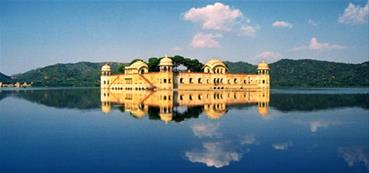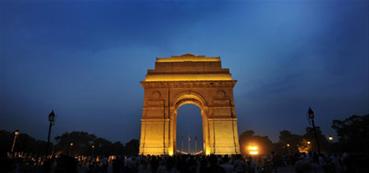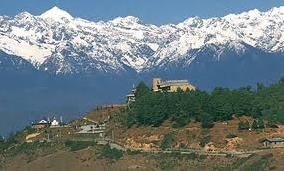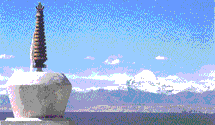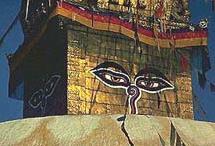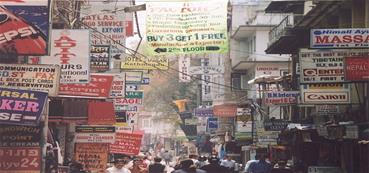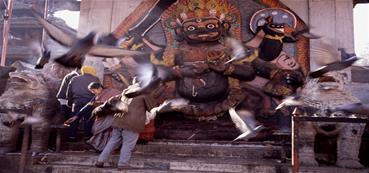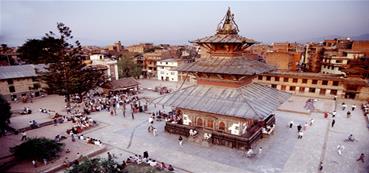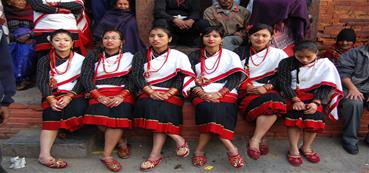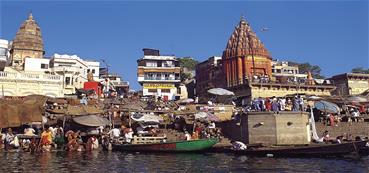You May Also Like
Combining the vibrant culture of these neighboring countries, This tour features some of the most visited sights of the Indian subcontinent. Start with exploring the varied sights of the popular Golden Triangle such as Taj Mahal, the imposing Amber Fort and the exotic lanes of Old Delhi. Later, embark on a journey through Nepal - the exotic Himalayan country with few days of sightseeing in Kathmandu, visits to the surrounding hills and Wildlife safaris in Chitwan National Park.
Destinations & Night Stays
North India - Nepal
Narrating the city's Mughal past, Old Delhi, takes you through the labyrinthine streets passing through formidable mosques, monuments and forts. You will also discover lively and colorful bazaars that boast to cater all sorts of good and items at mind-blowing prices amidst a barely controlled chaotic ambiance. The imperial city of New Delhi displays the finely curved architecture of British Raj. It generates a mesmerizing charm reflecting well-composed and spacious streets under the shade of beautifully lined avenues of trees and tall and imposing government buildings.
Meet our representative who will transfer you to your hotel.
(Standard check-in/check-out time is 1200 Hrs.)
Upon arrival, welcome with garlands.
Afternoon visit Shahjahanabad (Old Delhi) - the 300-year-old walled city, built by the Mughal Emperor Shah Jahan in 1648 as his capital. The focus of the city is the magnificent Red Fort and Jama Mosque built of red sandstone. Drive past the Red Fort from where the Prime Minister of India addresses the nation on India’s Independence Day. Visit Jama Masjid, the most elegant mosque in India that stands high on a hillock. In between and around these two focal points of the 17th century city is a thriving modern city in medieval setting. This area once had a tree-lined central avenue, with a canal dividing the thoroughfare.
Later, drive past the India Gate & Government Buildings and visit the Qutab Minar - at 72.5 meters the world's tallest brick minaret. Construction commenced in 1193 under the orders of India's first Muslim ruler Qutab-ud-din Aibak, and the topmost storey of the minaret was completed in 1386 by Firuz Shah Tughluq. The Qutab Minar is notable for being one of the earliest and most prominent examples of Indo-Islamic architecture. The complex is listed as a UNESCO World Heritage Site.
Overnight at the hotel
Visit Shahjahanabad (Old Delhi) - the 300-year-old walled city, built by the Mughal Emperor Shah Jahan in 1648 as his capital. The focus of the city is the magnificent Red Fort and Jama Mosque built of red sandstone. Drive past the Red Fort from where the Prime Minister of India addresses the nation on India’s Independence Day. Visit Jama Masjid, the most elegant mosque in India that stands high on a hillock. In between and around these two focal points of the 17th century city is a thriving modern city in medieval setting. This area once had a tree-lined central avenue, with a canal dividing the thoroughfare.
Later, drive past the India Gate & Government Buildings and visit the Qutab Minar - at 72.5 meters the world's tallest brick minaret. Construction commenced in 1193 under the orders of India's first Muslim ruler Qutab-ud-din Aibak, and the topmost storey of the minaret was completed in 1386 by Firuz Shah Tughluq. The Qutab Minar is notable for being one of the earliest and most prominent examples of Indo-Islamic architecture. The complex is listed as a UNESCO World Heritage Site.
Afternoon Leave for Agra by Car.
Upon arrival, check-in at the hotel.
Agra: Became the capital of Sikander Lodi in 1501, but was soon passed on to the Mughals, both Babur and Humayun made some early Mughal constructions here. It was under Akbar that Agra first aspired to its heights of magnificence from 1570-85 he ruled from nearby Fatehpur Sikri , when he abandoned that city he moved to Lahore ( now in Pakistan ) but returned to Agra in 1599 , all later Mughal rulers ruled from Agra till 1761 it fell to the Jats who did much damage to the city.
Overnight at the hotel.
Visit the Taj Mahal and Red Fort Taj Mahal (1631-1653), a poem in white marble, built by Shah Jahan in memory of his beloved wife, Mumtaj Mahal. Rabindranath Tagore calls "a teardrop on the cheek of time". Taj Mahal means "Crown Palace" and is in fact the most well-preserved and architecturally beautiful tomb in the world. It is best described by the English poet, Sir Edwin Arnold, as "Not a piece of architecture, as other buildings are, but the proud passions of an emperor’s love wrought in living stones.
"IMPORTANT - Taj Mahal is Closed on Fridays. The Red Fort built alongside the Yamuna River stretching almost 2.5 km. The fort’s colossal double walls rise 20 m in height and measure 2.5 km in circumference. The fort is surrounded by a moat.
Overnight at hotel
Transfer to Jaipur by Car.
En-route visit Fatehpur Sikri - the deserted red sandstone city that was built by Emperor Akbar as his capital. It was a veritable fairytale city and its ‘ruins are still in a pristine condition. It is not hard to imagine what the court life must have been like in the days of its grandeur.
Continue your Drive to Jaipur.
Jaipur: The capital city of the state of Rajasthan is popularly known as the “Pink City” because of the pink paint applied to the buildings in the old walled city. (In Rajput culture, pink was traditionally a colour associated with hospitality) The city owes its name, its foundation and its careful planning to the great warrior, astronomer Maharaja Jai Singh II (1699-1744). In 1727, with Mughal power on the wane, Jai Singh decided the time was ripe to move down from his somewhat cramped hillside fortress at nearby Amber to the new site. He laid out the city, with its surrounding walls and six rectangular blocks, according to principles of town planning set down in the Shilpa-Shastra, an ancient Hindu treatise on architecture Overnight at the hotel.
Morning visit to Amber Fort
11 kms from Jaipur – Marvelous example of Rajput architecture with its terraces and ramparts reflected in the Moat Lake below. The fort interior has various royal halls decorated with intricate ivory work, exquisite wall paintings and tiny mirror chips, which create a tantalizing reflection effect. Enroute, photo stop at the Hawa Mahal ( Palace of the Winds)
Afternoon visit the famous City Palace and the Observatory City palace museum – an imposing blend of traditional Rajasthani and Mughal Art. The museum is resplendent with its collection of robes of Royal Princes, carpets, an armory of old weapons, miniature paintings portraying court scenes, battle scenes and processions, Jantar Mantar (observatory) – which is the largest stone and marble crafted observatory in the world. Situated near the gate of the City Palace, the observatory has 17 curiously shaped instruments, many of them still in working condition. Late afternoon, Enjoy a Cycle rickshaw ride through the busy bazaars of the city area - Explore this part of Jaipur... that sells dreams and desires. Unravel this horizon that will not only fascinate you but also enthrall you with its dynamic colors aura.
Overnight at the hotel.
In time leave for Chitwan National Park
Chitwan National Park : Spread in an area of 932 sq km this National Park is the biggest forest region of Nepal with a wide range of wildlife – the rare one horned rhinoceros, several species of deer, sloth bear, leopard, wild boar and of course the elusive Royal Bengal Tiger. Nearly 350 distinct species of birds, fresh water dolphin and crocodile are the other attraction.
On arrival check in at hotel
Afternoon Jungle activities - A talk on the elephants by our Naturalist at the Elephant stable, Jungle Safari on elephant back. An excellent opportunity to see four different kinds of deer, rhinoceros, wild boar, Leopard, Monkeys and many other smaller animals. And a slide Show Presentation about the natural history and Flora & Fauna of the National Park.
Overnight at Resort
Breakfast at the Lodge
Morning at leisure.
In the afternoon, enjoy a Dugout canoe ride along with Dungre/Rapti River, An excellent opportunity for bird watching and to see the 2 rare species of crocodile, the marsh mugger and the fish eating gharial.
Overnight at the hotel.
Leave for Kathmandu by Cae
Upon arrival, Check in at hotel
Afternoon at leisure
Overnight at hotel
Morning city tour of Kathmandu City tour includes visit of Swayambhunath and Patan
Swayambhunath: One of the world’s most glorious Buddhist Chaityas said to be 200 years old. As this chaityas is situated 500 feet above the level of the valley it offers excellent panoramic view of Kathmandu valley
Patan: This ancient city Patan is full of Buddhist monuments and Hindu Temples with five bronze gateways, guardian deities and wonderful carving. It is noted for its craftsmen and metal workers and is known as the city of artists. During the sightseeing tour you will visit Old Durbar Square, full of ancient palaces, temples and shrines noted for their exquisite carving. Visit Krishna Mandir built of stone, Hirnaya Varna Mahavihar, Khumbeswor Temple and Mahaboudha.
Overnight at hotel
In time transfer to airport to board flight to onward destination.
Route Map
Plan your own trip
| Hotels | Period | Type | Price (Starts From) |
|---|---|---|---|
|
3 Star
|
July 2025 till April, 2026 | Private | $1550.00 |
|
4 Star
|
July 2025 till April 2026 | Private | $1870.00 |
| Send Inquiry | |||
Notes
- This Tour Includes 10 nights accommodation with Breakfast in India
- Prices are Per Person on Twin Sharing Basis
- Prices are based on 02 persons traveling together by Private Chauffer Driven Air-conditioned Car
- Prices include the services of an English Speaking guide for all sight seeing and Single entrance fee to all monuments mentioned in the itinerary.
- Air Fare supplement is extra.
- Prices are not valid during Christmas & New Year period
- Tour can be customized as per your requirement
- Hotels mentioned above or similar will be provided
- Terms & Conditions apply. Please contact us for full details.


